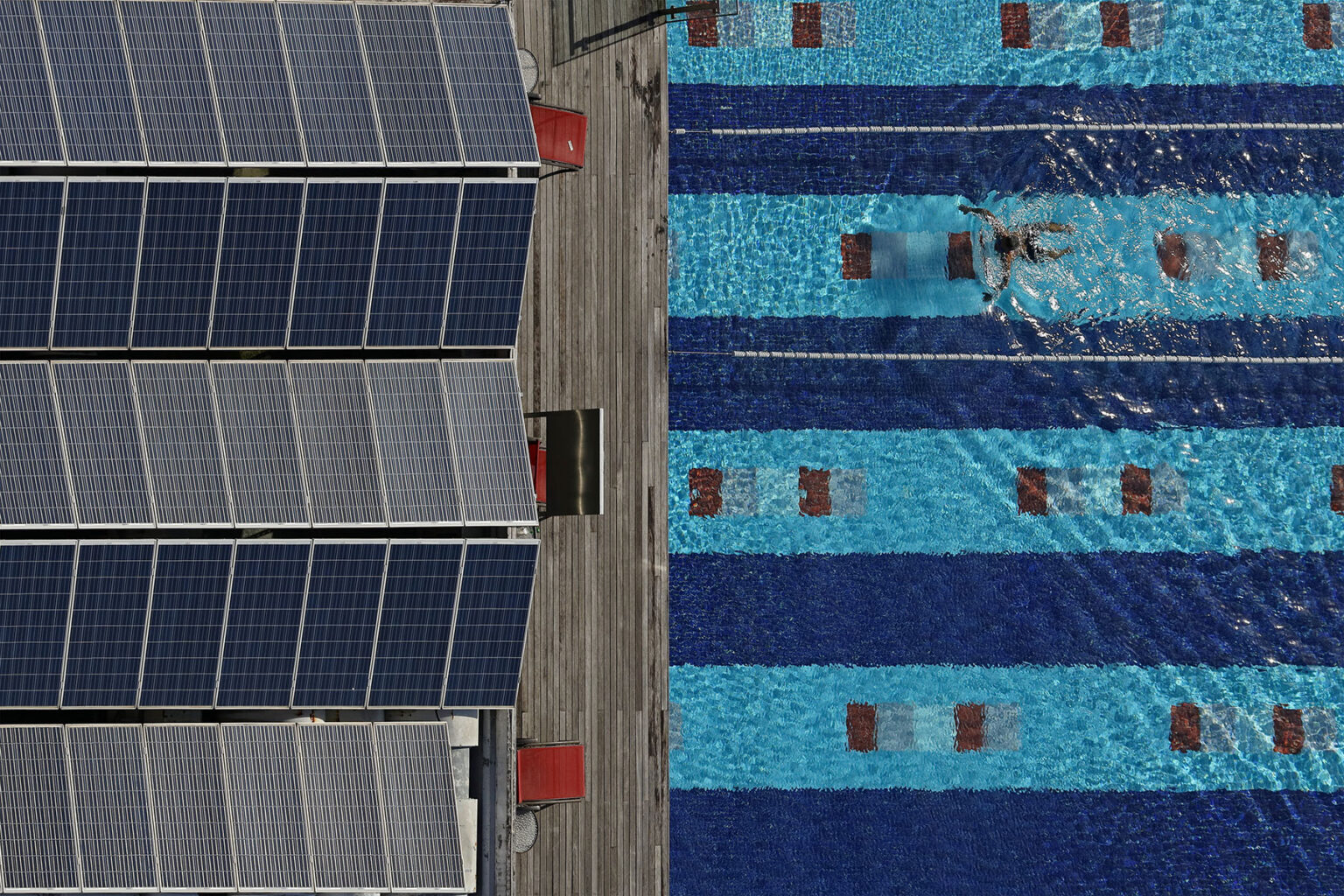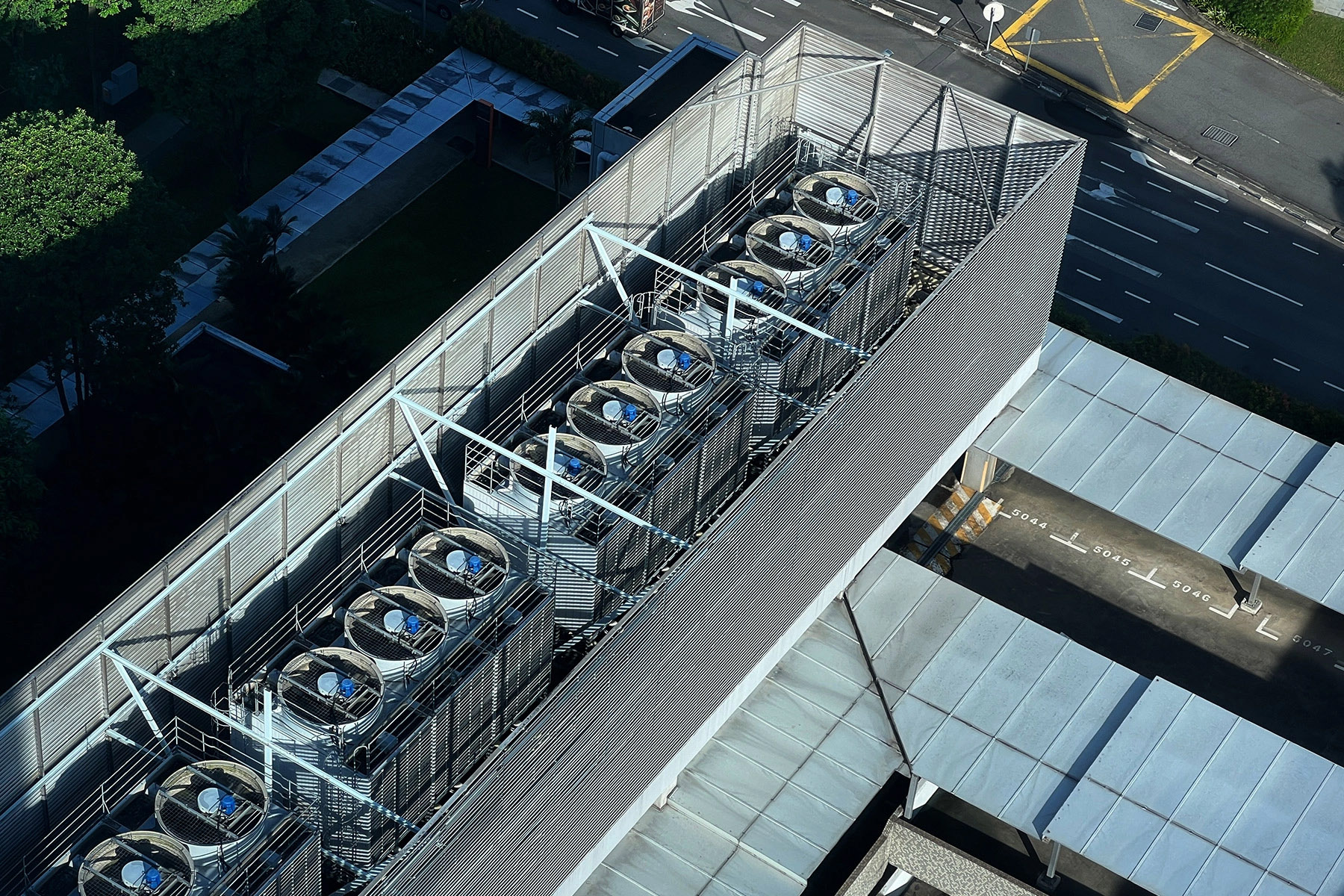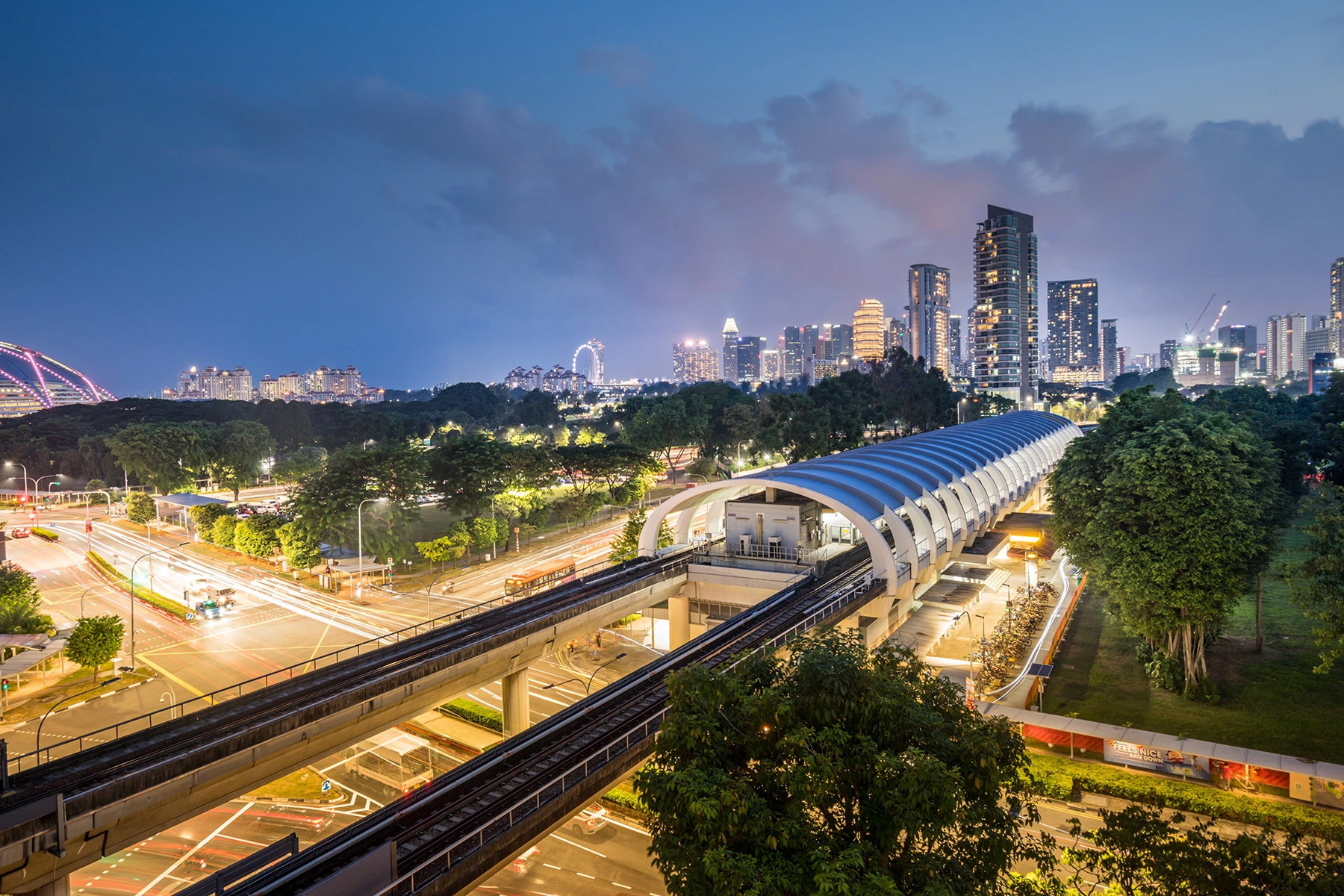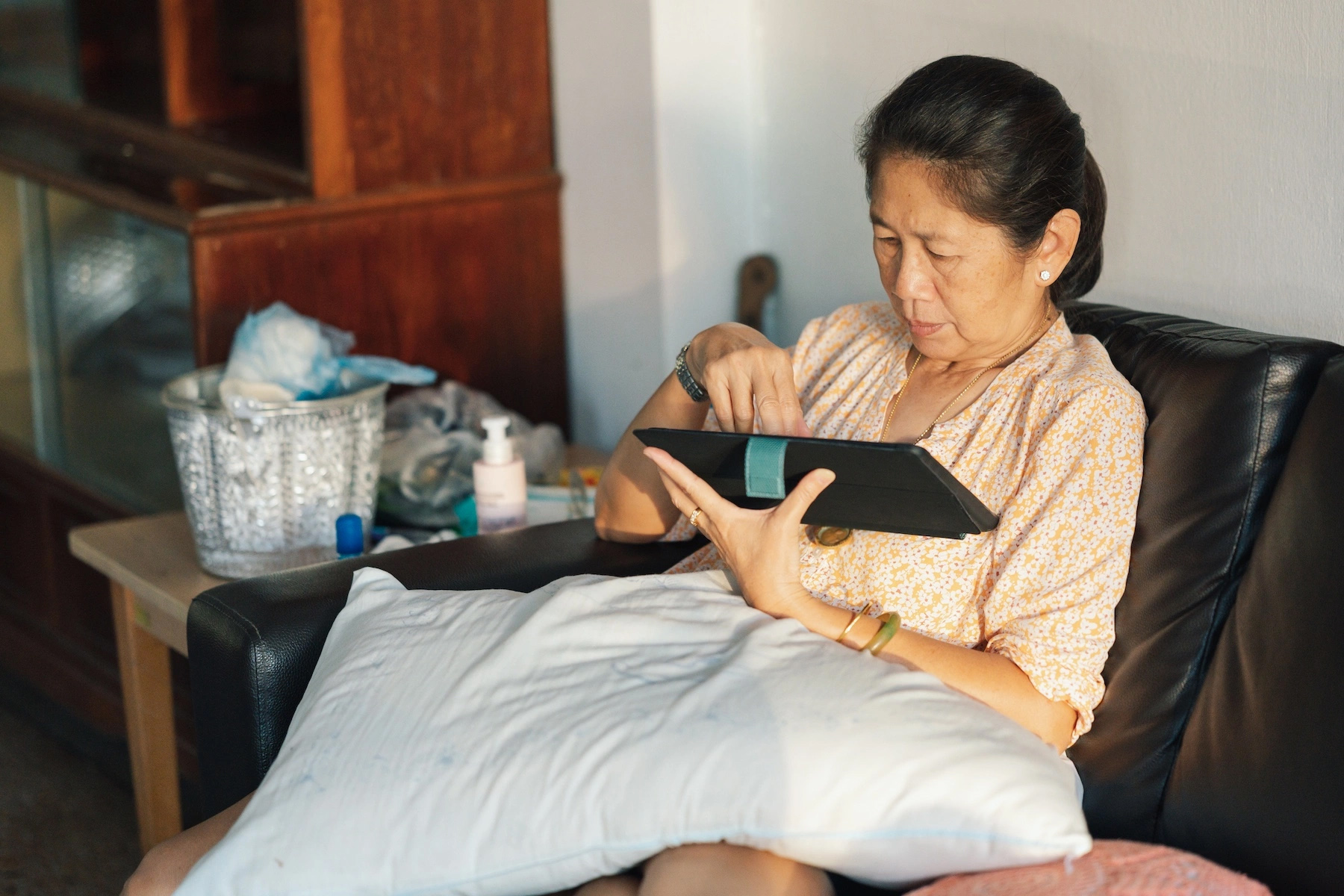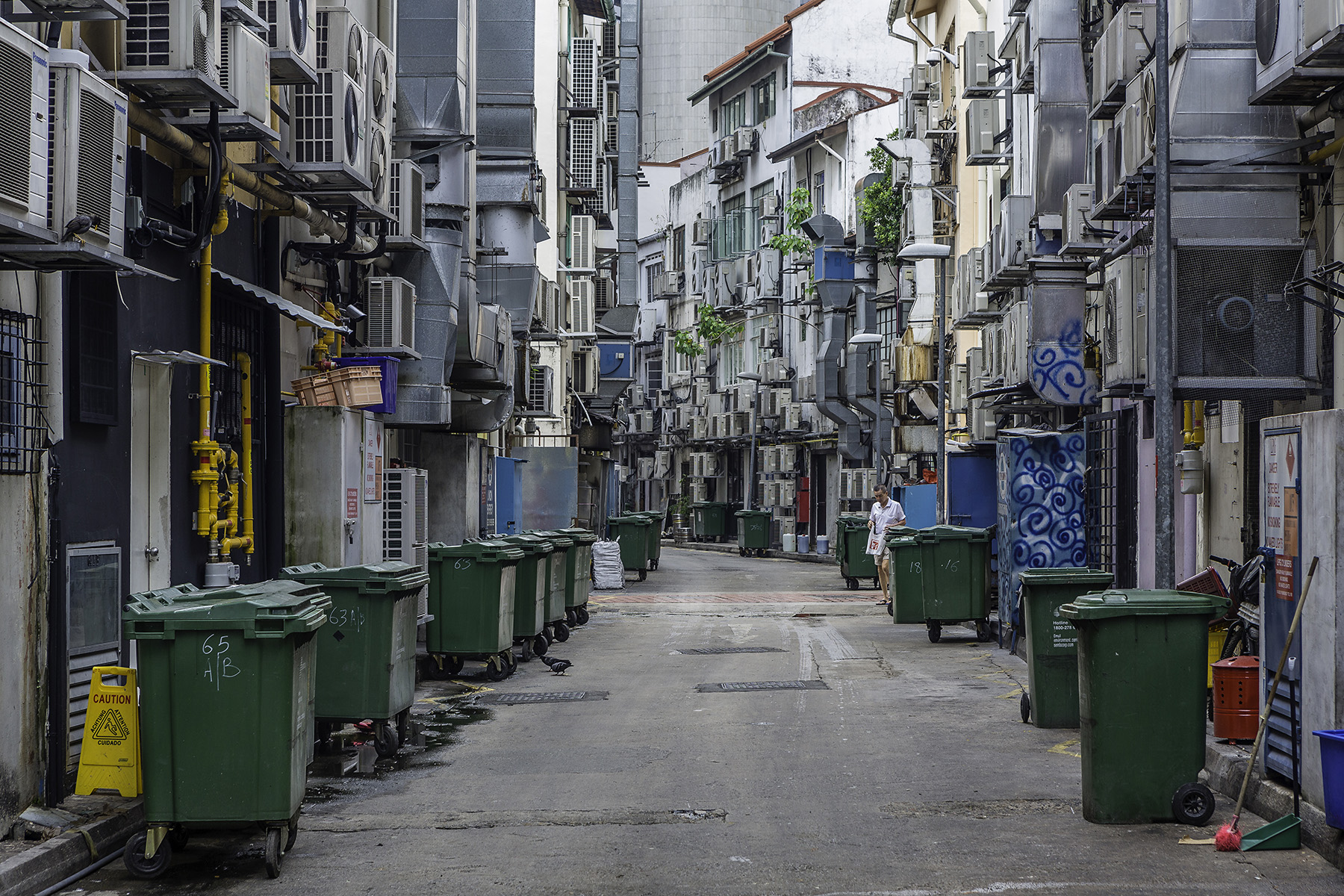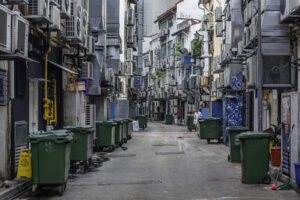For new residents in Singapore, living sustainably is a fundamental aspect of embracing life in this dynamic city. From getting involved in the sharing economy to engaging in recycling efforts, adopting eco-friendly practices is crucial for conserving resources and reducing waste.
Explore the following tips on how you can live more sustainably and keep Singapore thriving for future generations:
- 1. Choose a green energy provider
- 2. Use green transport options
- 3. Get involved with the sharing economy
- 4. Compost at home
- 5. Shop locally
- 6. Download the right green apps
- 7. Go paperless with your banking and bills
- 8. Conserve your water usage
- 9. Recycle responsibly
- 10. Replace old appliances
- Useful resources
1. Choose a green energy provider
You can live more sustainably in Singapore by choosing a green energy provider. EDP Renewables (formerly Sunseap) is leading the way, but five other power companies also have eco-friendly energy plans (i.e., carbon credits and RECs). These include:
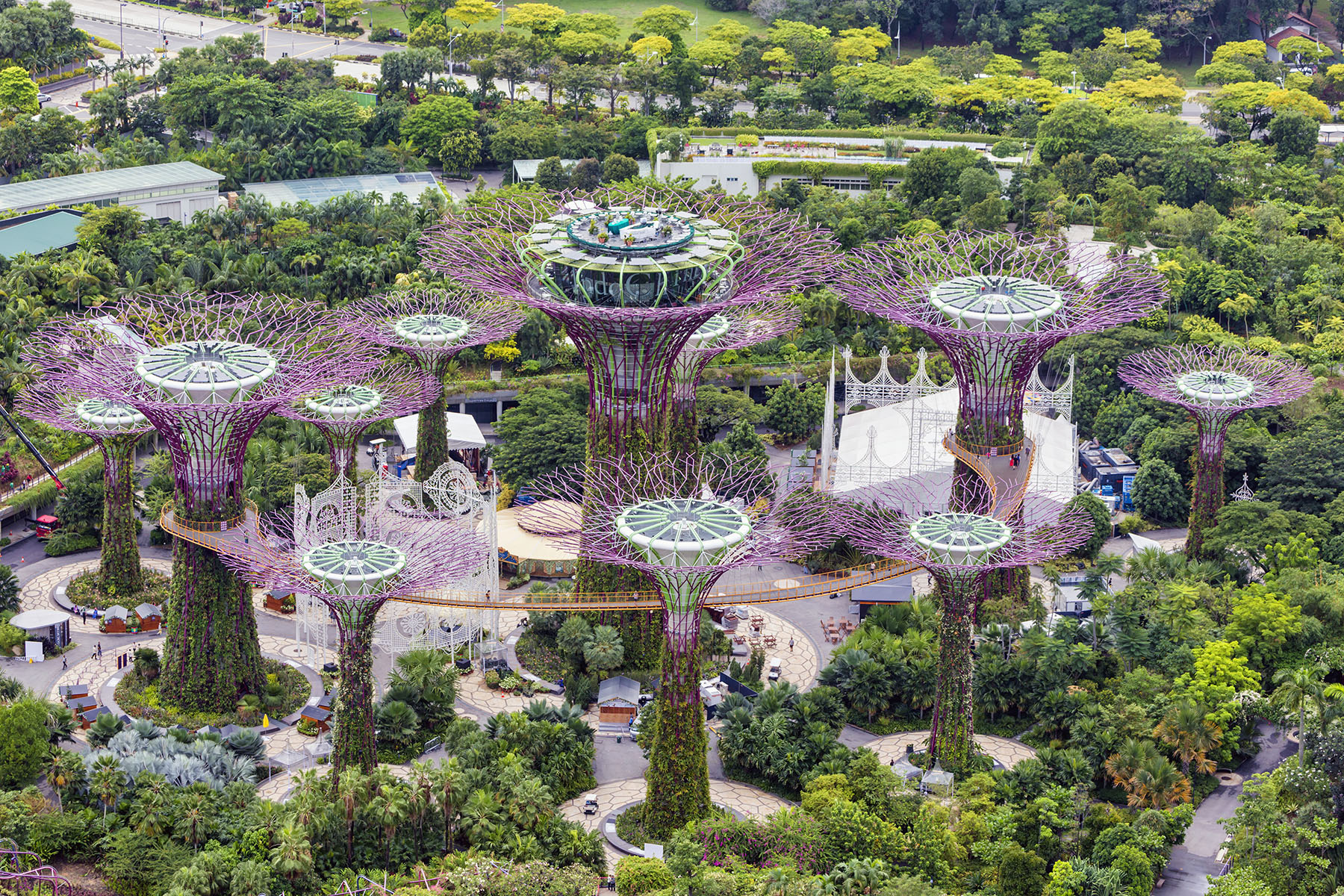
Like the rest of the world, Singapore still burns fossil fuels (i.e., oil and gas) to provide residential and commercial properties with electricity. Fortunately, around 92% of the country’s power (2022) comes from natural gas, the cleanest hydrocarbon resource.
Still, Singapore is working toward providing greener, renewable energy. It aims to use more solar power and employ the following policies to offset carbon emissions:
- Carbon credits: Your electricity provider calculates the carbon pollution your consumption created and gets credits to compensate for it. Subsequently, they use these to support projects that reduce greenhouse emissions (e.g., tree planting campaigns).
- Renewable Energy Certificates (RECs): Electricity companies can include RECs in their utility plans, similar to carbon credits. However, instead of balancing out emissions, these RECs promote renewable energy by supporting solar grids.
- Solar power: Singapore’s cleanest electricity comes from the government’s SolarNova initiative. It promotes solar panel installations with payment schemes and incentives like selling excess electricity back to the grid. The aim is to achieve 2 gigawatt-peak (GWp) solar capacity by 2030, powering about 350,000 households yearly.
Regrettably, Singapore’s low average wind speeds make investing in wind power infrastructure impractical, while heavy maritime traffic hinders the installation of offshore turbines.
2. Use green transport options
The Ministry of Transport’s (MOT) Walk Cycle Ride campaign actively promotes more sustainable and healthier modes of transport in Singapore. The government wants to achieve 75% mass public transport use during peak times by 2030, with the walk, cycle, or ride modes constituting 90% of peak period journeys by 2040.

Local expert
Gayatri Bhaumik
Insider tip
The Land Transport Authority (LTA) is committed to electrifying 50% of its fleet by 2030, with the goal of transitioning all vehicles to clean energy by 2040.
As such, this nation’s comprehensive public transport network aligns with global trends toward sustainable urban mobility aiming to reduce carbon emissions. It comprises the Mass Rapid Transit system (MRT) – a railway that spans the entire city-state – and an extensive bus network.
Other green transport options that help you live more sustainably in Singapore include cycling and driving cleaner-fueled cars.
Cycling
Singapore’s sustainable urban planning includes dedicated cycle lanes, making cycling safer. The Lion City also has an extensive Park Connector Network (PCN) that connects the various green spaces across the city-state to encourage residents to cycle for leisure and fitness.
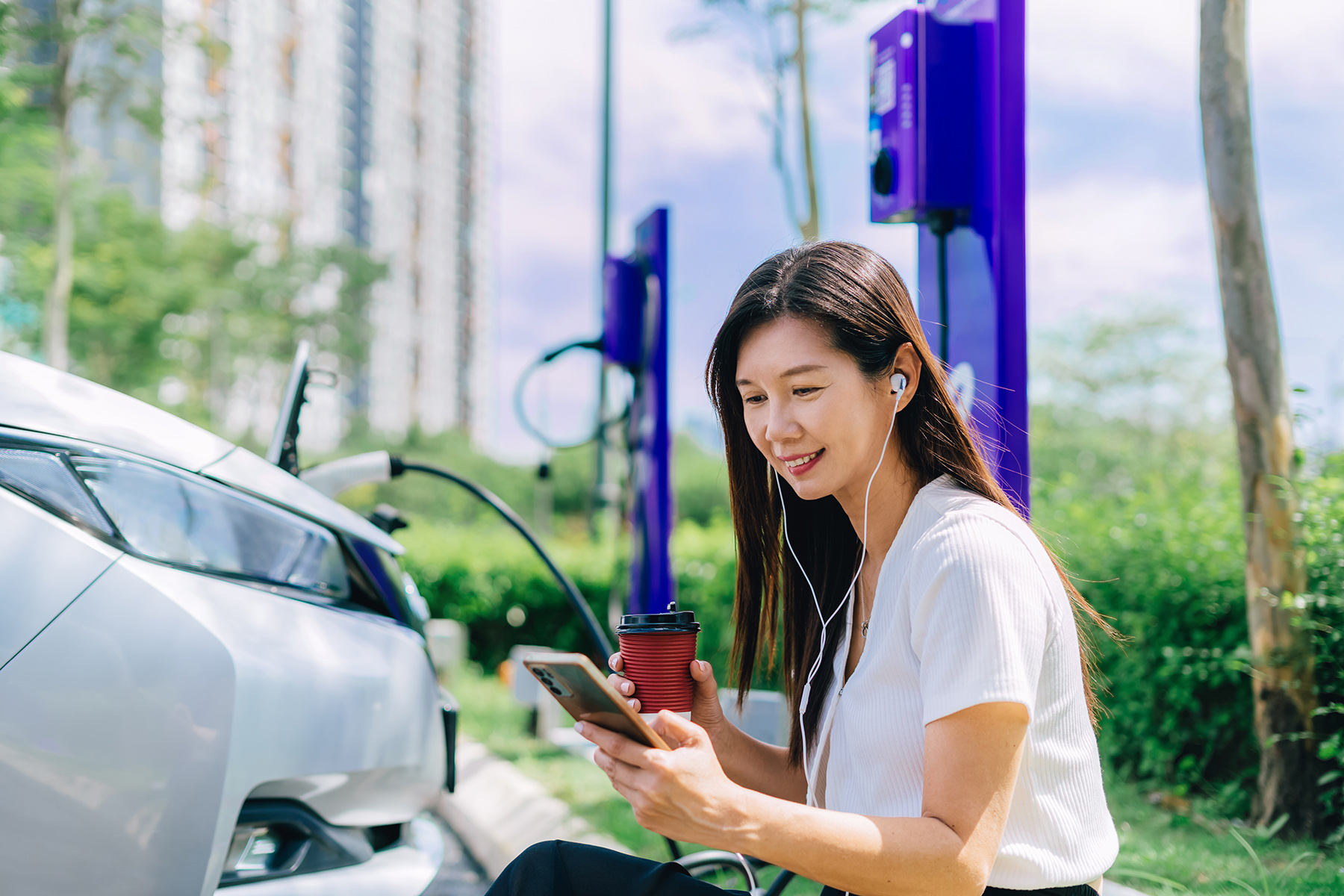
Driving
In its sustainable bid to reduce carbon emissions and improve air quality, this island nation encourages more drivers to convert to greener cars through various rebates and incentive programs. For example, Singapore’s Green Vehicle Rebate (GVR) scheme helps finance the purchase of an electric vehicle (EV). Similarly, hybrid cars (i.e., combined combustion and electric engines) are also gaining popularity because of their flexibility and financial incentives.
Furthermore, the government is continuously expanding the EV charging infrastructure, including more public stations across Singapore.
3. Get involved with the sharing economy
You can ramp up your efforts to live sustainably in Singapore by joining the sharing economy; individuals and groups collaboratively distribute goods, resources, and services. These efforts help to build a sense of community and reduce the negative impact of consumerism.
Indeed, you can find various platforms in Singapore to share cars, bicycles, spaces, equipment, and skills.
Car-sharing platforms
The most popular car-sharing platforms include:
It will also save you money, as owning a car can be expensive in Singapore, considering you need to buy the vehicle and are responsible for the maintenance costs, parking fees, and road taxes.
Bicycle-sharing platforms
Similarly, you can also take advantage of bicycle-sharing platforms, such as:

Local expert
Gayatri Bhaumik
Insider tip
Unfortunately, people avoid using electric scooters as the high volume of traffic makes it too dangerous.
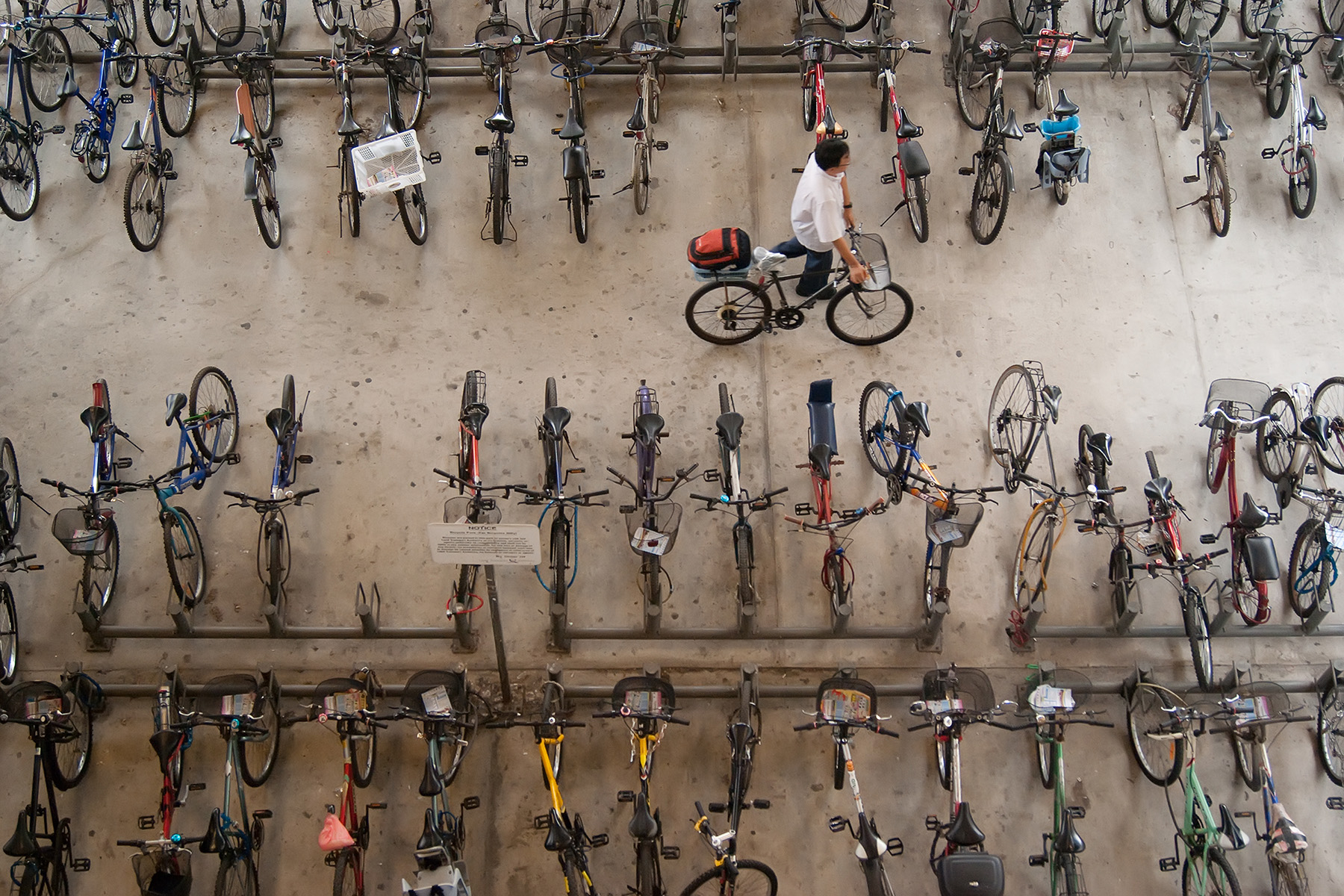
Share tools, spaces, and skills
Do you have a DIY project at home but want to avoid buying the tools? Then consider borrowing from neighbors, asking in social media groups, or renting them via a circular economy app like Lendor (iOS or Android).
Similarly, if you want to share a space to work, host an event, set up multimedia productions, or a pop-up store, you will be spoilt for choice when you browse the many options on Splacer.
A shared accommodation community like Couchsurfing is popular in Singapore, especially with tourists. However, it may also be an option for a newcomer who needs time to find their feet while looking for a permanent home to rent.
This skill-sharing collective enables the exchange of services for time instead of money. For instance, Person A (e.g., a teacher) tutors the child of Person B (e.g., a plumber), while Person B returns the service by fixing minor plumbing issues in the teacher’s home.
Other popular community-based platforms in Singapore that encourage a sharing economy include:
- Repair Kopitiam: Repair events where volunteers help fix broken items brought in by participants
- The Good Exchange: Operates donation drives and redistribution events
4. Compost at home
Singapore encourages its inhabitants to employ the three Rs at home:
- Reduce: Buy local and seasonal produce (only what you need)
- Redistribute: Share excess food by donating to the Food Bank Singapore (FBSG) organization or making use of circular economy platforms
- Recycle: Compost food scraps and excess
Of course, many Singapore residents are apartment dwellers, which can deter them from composting their food waste because of space constraints and concerns about smells, pests, and dirt.
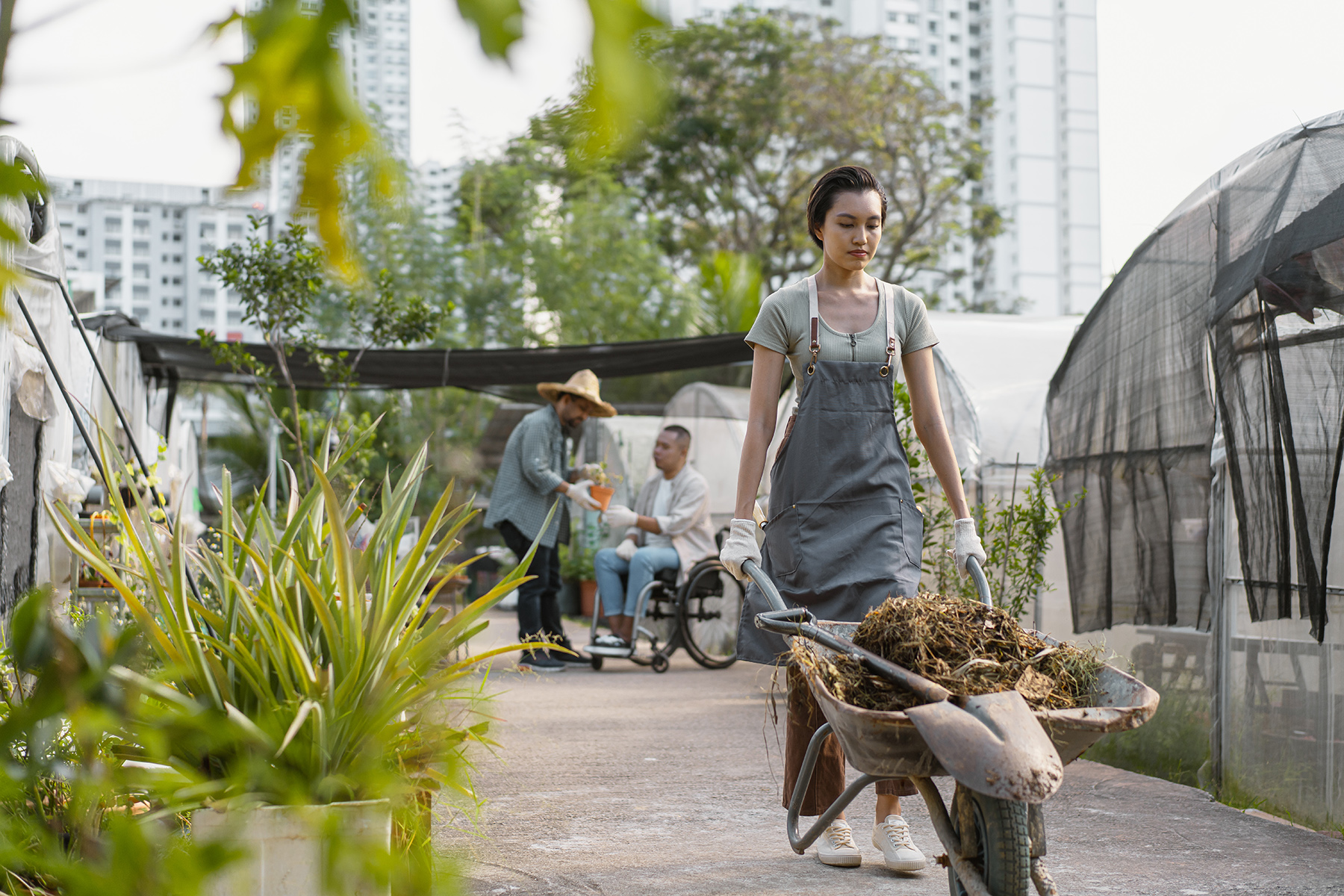
Nonetheless, you can learn how to compost at home by accessing practical information and support from the many urban sustainable organizations, such as The Green Collective and Singapore Vermicomposting (worm composting).
Alternatively, you can join the urban farm community, where you can attend workshops and buy pesticide-free and organic produce or grow your own. Some of the most popular ones in Singapore include:
- City Sprouts
- Kin Yan Farm
- Artisan Green
- Bollywood Farms
- Sky Greens
- Edible Garden City
- Hydro Urban
- Comcrop
- Quan Fa Organic Farm
According to the latest data from the National Environment Agency (NEA), food waste accounted for 11% of Singapore’s general waste in 2022, which translates to 813,000 tons. The food waste recycling rate was 18%, a slight improvement from 2021.
To continue this trend and become a zero-food waste nation, the government enacted the Resource Sustainability Act (2019). Industrial and commercial buildings that generate large amounts of food waste must be segregated for treatment.
5. Shop locally
Being an island nation, Singapore imports most of its produce, increasing its carbon footprint significantly because of the distances these products have to travel.
However, you can live sustainably by filling your shopping basket primarily with locally sourced produce; it is typically fresher, more nutritious, and affordable.
Many local producers belong to the Singapore Good Agricultural Practice (GAP) and Clean and Green (C&G) certification schemes. Their products carry the following certification badges:
- Singapore Fresh Produce (SGFP)
- GAP Certification
- C&G Certification
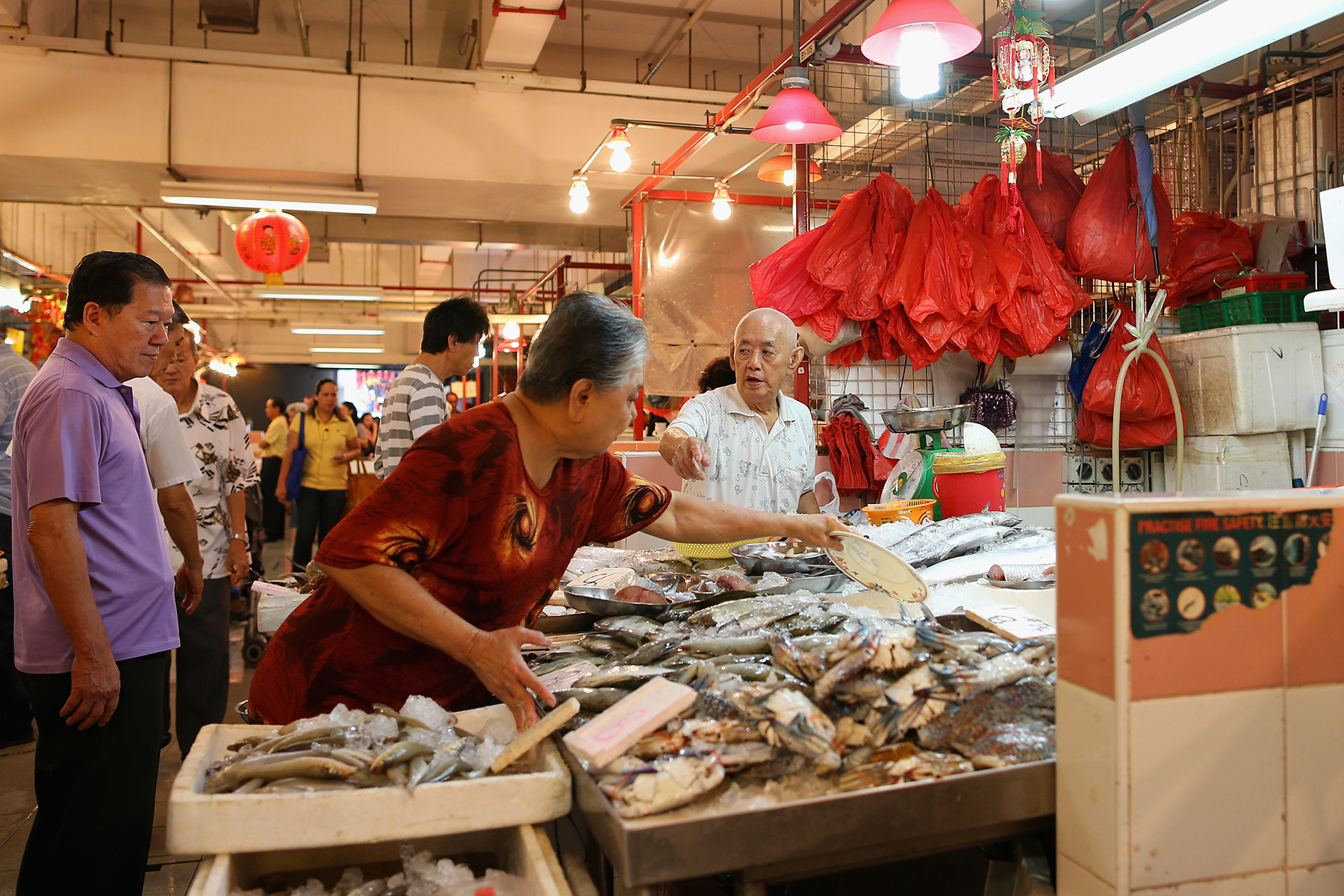
Indeed, you can buy locally sourced produce directly from wet markets or urban farms. Examples include:
- Chew’s Agriculture (cage-free eggs)
- Bean Farm (bean sprouts)
- Hay Dairies (goat milk and produce)
- Kin Yan (pesticide-free mushrooms)
- The Little Red Farm (vegetables)
- The Fish Farmer (sustainable seafood)
However, if you prefer a supermarket, the Singapore Food Agency (SFA) provides an extensive list of places where you can buy local produce, for example:
- Cold Storage
- NTU Fair Price
- Prime Supermarket
- Redmart
- Sheng Siong
- The Local Farm Grocer
If you go to the supermarket, you can easily distinguish these products by looking for the round, red certification badges on the packaging.
These labels categorize items as follows:
- Fresh, local produce
- Fresh, quality-assured, local produce
- Fresh, quality-assured, sustainably grown, local produce
6. Download the right green apps
Instead of only using your smartphone to scroll through social media, you can download these green apps to help you live more sustainably in Singapore:
| App | How it helps |
| Treatsure | Minimize food waste by buying excess produce from hotel buffets, supermarkets, and food and beverage establishments at low prices |
| susGain | Get rewards for green habits (e.g., refillable water bottles) and use these to contribute to tree-planting initiatives. It also lists nearby water refill and cash-for-trash stations, eco-friendly shops, and food bank locations. |
| OLIO | Share and find excess food and other items in your neighborhood |
| Upcircle | Artists, crafters, and small businesses will reuse your old items and recyclables for projects |
| GreenDay | A large online marketplace for eco-friendly and sustainably sourced items from local and eco-conscious merchants |
| JouleBug | Access green tips and log your real-life sustainable actions to score points in eco challenges |
| Capture | Track your carbon footprint and receive suggestions how to offset the carbon emissions generated by your lifestyle via verified sustainable projects |
| Ecosia | A private search engine that funds climate action by directing 80% of the money from search ads to tree-planting projects in over 35 countries |
| Abillion | A consumer review platform on sustainable products and services |
7. Go paperless with your banking and bills
Singapore’s digital infrastructure makes it relatively easy for individuals and businesses to go paperless. For example, the government’s Singpass platform allows you to access most of its services online, such as visa applications, tax filing, license renewals, and more.
Other ways to go paperless include using mobile banking and digital payments.
DBS Paylah! is a widely used mobile payment app that easily facilitates purchases, money transfers, and bill payments. It offers swift and secure transactions and exclusive discounts at select merchants.
Another option is PayNow, a mobile transfer service enabling you to move money instantly via your mobile number, National Registration Identity Card (NRIC), or Foreign Identification Number (FIN).
Of course, as an expat, you may also be familiar with the following international services:
Furthermore, Singapore’s technologically advanced business culture has seen most companies – including telecommunications and utility providers – switch to emails, messaging apps, online portals, and electronic signatures, negating the need for a physical paper trail.
Therefore, it is no surprise that the IMD Smart City Index named Singapore the Top Asian City (2023) and placed it in third place on the World Digital Competitive Ranking for its technological innovation.
8. Conserve your water usage
Around 81% of household water consumption includes showering, flushing the toilet, washing the dishes, and doing the laundry. Fortunately, you can make a few practical changes at home to conserve water and live sustainably in Singapore.
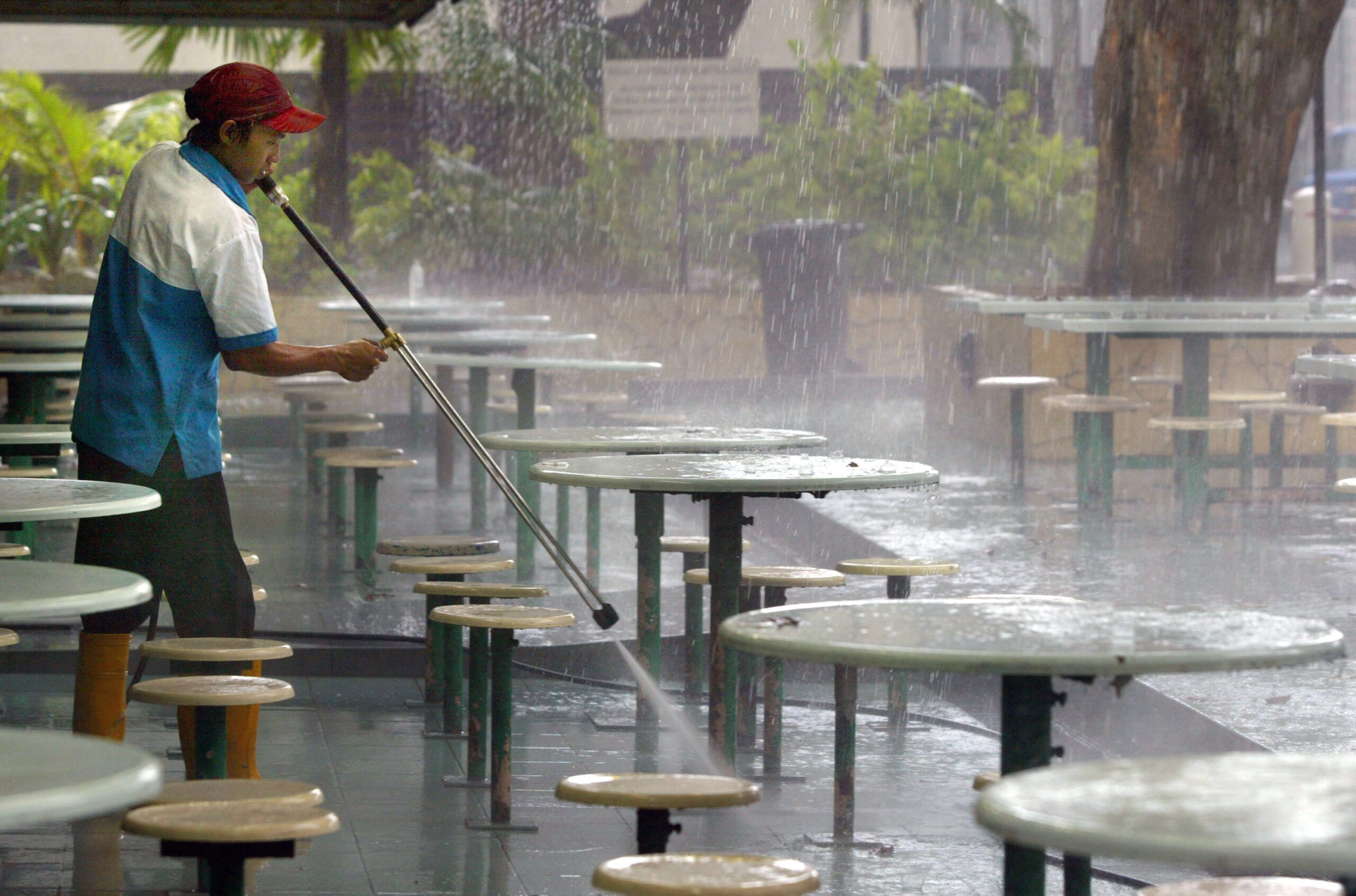
For example, the Singapore National Water Agency (PUB) encourages residents to employ this mnemonic:
- W: Wash only full loads
- A: Always half-flush (when possible)
- T: Turn off the shower when shampooing, soaping, or shaving
- E: Ensure the tap is off when brushing your teeth
- R: Rinse vegetables and fruit in a container, not under running water
Additionally, you can also access these government initiatives and resources:
- Water Efficiency Labelling (WELS) scheme: A grading system (i.e., labels) on appliances and plumbing fixtures indicating their water efficiency levels
- Water-saving kits: A set of thimbles to place on taps and showerheads to regulate their flow rate
- Climate Friendly Household (CFH) Program: Government vouchers to offset costs when buying energy-efficient shower fittings
- Smart water meters: Track and monitor your water usage accurately and get early warnings about possible leaks
According to the latest data from the PUB, the island’s daily water consumption is around 440 million gallons. They predict that the national demand for its water supply will double by 2065 to service its growing population and economy.
Therefore, the government launched the water conservation campaign – Make Every Drop Count – during the annual Singapore World Water Day (SWWD) festivities. Each year, it focuses on a different theme. For example, the 2023 motto, “Simple Actions, Sustainable Future,” encouraged the community to use water responsibly and sustainably to future-proof the city-state’s supply.
9. Recycle responsibly
You can check on the government site, Clean & Green Singapore, which exact items you can recycle in each category.
Generally, you will find two containers near your home where you can dispose of your household trash:
- Brown bin: General trash
- Blue bin: Recycling
Typically, you can recycle the following items in Singapore:
- Paper
- Plastics
- Glass
- Cans
- Clothing/textiles
The government has introduced a zero-waste strategy as Singapore’s only landfill approaches capacity. The goal is to decrease daily waste sent to the Semakau Landfill by up to 30% by 2030. Therefore, household waste recycling has become vital to this sustainability plan.
10. Replace old appliances
You can live more sustainably in Singapore by replacing your old appliances with new, energy-efficient ones. As this helps to reduce overall energy consumption, your utility bills will be lower, and you will generate less carbon emissions, which is better for the environment.
The Singapore government offers the following incentives and rebates to encourage residents to purchase energy-efficient appliances:
- Goods and Services Tax (GST) Voucher Scheme: Low-and middle-income households qualify for GST vouchers, including Cash and Utilities-Save (U-Save) rebates to help offset utility bills on energy-efficient appliances
- Climate Friendly Household (CFH) Program: Government vouchers to offset costs when buying energy-efficient refrigerators and LED lights
- HDB Greenprint: The Housing and Development Board (HDB) offers rebate incentives to residents to replace old appliances
- Energy Efficient Fund (E2F): An NEA umbrella scheme to help businesses improve their energy efficiency through five different grants – not for residential users
Where to buy energy-efficient appliances
You will be spoilt for choice when looking for home appliance stores in Singapore. Most sell energy-efficient products with innovative features to help you live sustainably and conveniently. Some of the leading reputable retailers include:
- Best Denki
- BSH Home Appliances
- Etronin Home Appliances Service & Trading
- Gain City
- Harvey Norman
- Kitchen Aid
- Kong Tai Electrical
- Lion City Company
- Mega Discount Store
- SGAppliances
- Yeobuild Homestore
Recycle electronic waste and appliances
Many of these home stores also offer trade-in (e.g., store credits or discounts on new purchases) or recycling programs for old appliances, specifically:
- Best Denki
- Gain City
- Harvey Norman
- Mega Discount Store
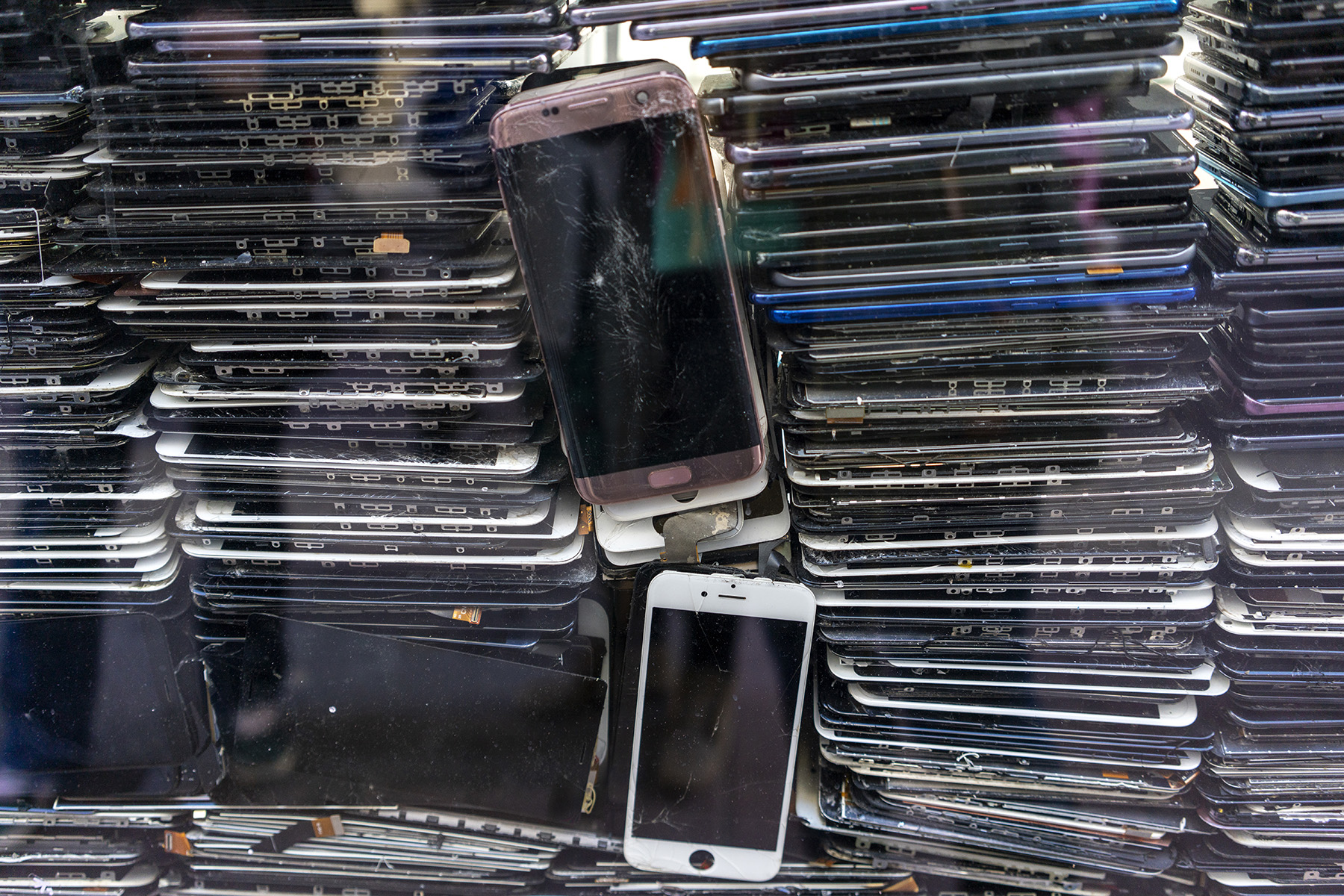
You can also find around 300 e-waste recycling bins across Singapore. Alternatively, you can access several counter-based collection services or quarterly collection programs to dispose of electronics and household appliances responsibly. Examples of electronic or e-waste items include household appliances, mobile phones, computers, batteries, and lightbulbs.
These products contain precious metals like palladium, gold, copper, and silver, which can be harmful if tossed away in the general trash. As such, recycling operations extract these metals as valuable resources while protecting the environment and people’s health.
ALBA – Singapore’s e-waste collection and recycling program – offers clear and detailed information on where, how, and what you can recycle. You can also download the STEP UP app to earn points when you recycle your e-waste, which can be exchanged for discounts and special deals at participating retailers.
Useful resources
- Smart Nation Singapore – a government initiative to contribute to technological innovation and ensure Singapore becomes a digital champion
- Ministry of Transport (MOT) – more information about Singapore’s public transport network and sustainable urban mobility initiatives and goals
- Singapore Food Agency (SFA) – a government agency with more information on quality assurance and sustainability schemes
- Energy Market Authority (EMA) – a government agency providing information about the nation’s energy sources, green energy policies, plans, and systems
- PUB – Singapore’s national water agency
- ALBA – Singapore’s e-waste collection and recycling program
- Housing and Development Board (HDB) – state housing development agency with more information on the government’s SolarNova program
- SolarNova – EMA’s information on the SolarNova program, including installation guide, payment schemes, and selling excess electricity
- SG Motoring Hub – an overview of the government incentives and rebates for EVs
- Land Transport Authority (LTA) – official information on the government’s EV plans and policies
- National Environmental Agency (NEA) – more information on the government food waste management (e.g., composting)
